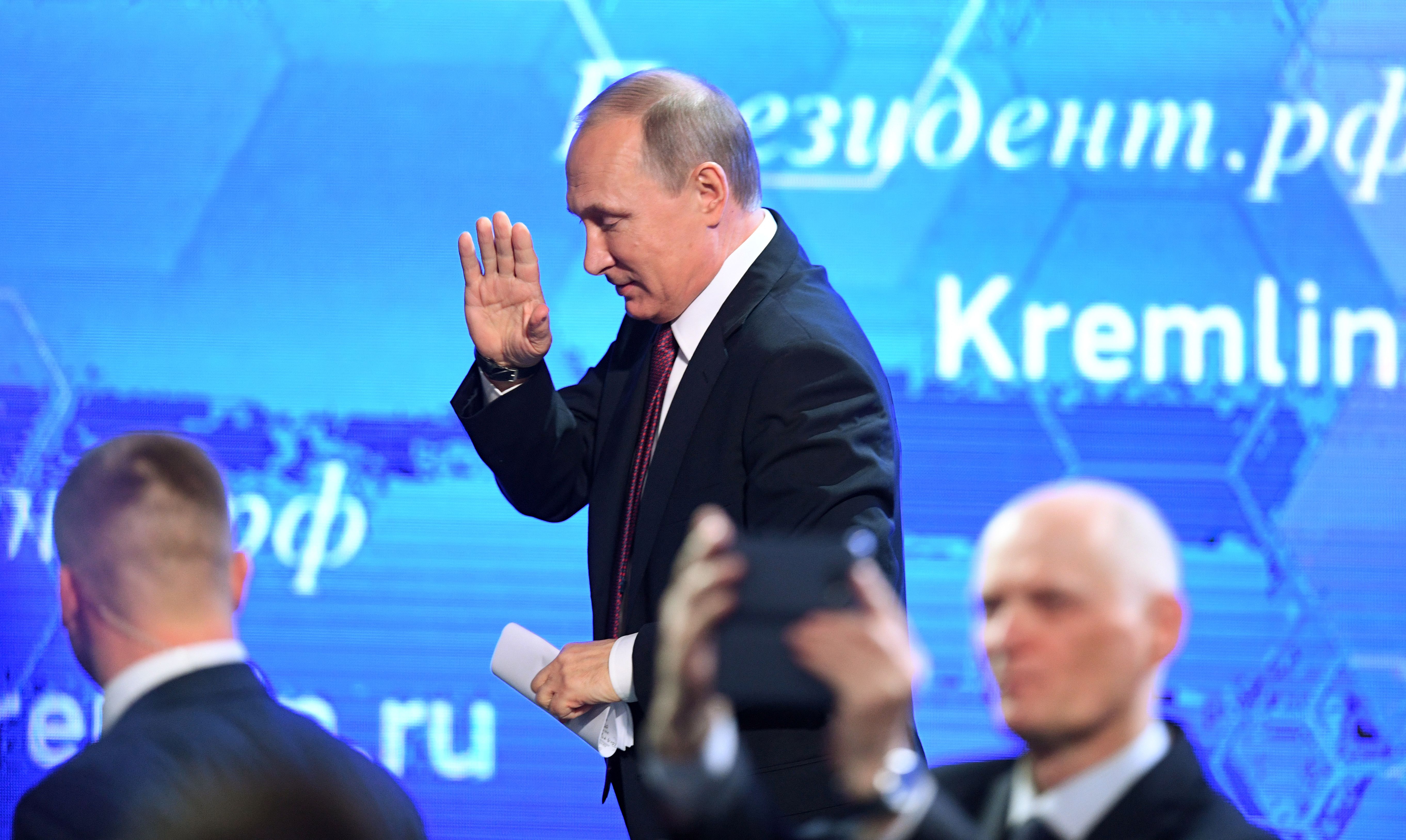Washington and Moscow appeared at greater odds this week, after the United States downed a Syrian warplane that American officials said had threatened U.S. operations against the Islamic State militants in Syria.
Russia strongly opposed what the U.S. called a defensive measure; a Russian fighter jet reportedly came within a few feet of a U.S. reconnaissance aircraft over the Baltic Tuesday, after Moscow had halted the operation of a joint hotline with the U.S. used to coordinate aircraft missions over Syria.
The incident raised hairs in the U.S., with White House watchers keen to see if President Donald Trump—embroiled in accusations of collusion with Russia—would indeed act in the interest of U.S. forces abroad, or if his administration’s alleged ties to Russia would temper his response to the Kremlin.
The U.S. Department of the Treasury sanctioned nearly 40 individuals over Russia’s annexation of Eastern Ukraine Tuesday, in a development not expressly tied to the standoff over Syrian air space.
Many in the world of political analysis are convinced that—if not the Russia ties themselves—the ongoing Trump-Russia probe and the overwhelming need for the Trump administration to distance itself from its apparent ties to Moscow have affected Washington’s international diplomacy, particularly in Syria.
“There is a high probability that the Trump-Russia probe is having an effect on U.S. policies toward the Syrian crisis. Most of Trump’s decisions are impulsive and based on his emotions, his narcissism and his egotistical needs,” says Karim Emile Bitar, director of the Institut de Relations Internationales et Strategiques, a Paris-based international relations think tank. Bitter spoke to Pacific Standard from Beirut.
“The two countries have constantly, over the last seven decades, found a mutual interest in staging controlled crises.”
This isn’t the first time U.S. military endeavors in Syria—a safe distance from both the U.S. and Russia—have heightened concerns over Trump’s Russia ties. In early April, in response to a chemical attack launched by Damascus against civilians in a rebel stronghold, the U.S. bombarded a Syrian airbase with tomahawk missiles, stoking fears of broader international conflagrations.
“One of the objectives of his limited strikes on Syria was to show that he was not kowtowing to the Kremlin,” a long-time supporter of the administration of Syrian President Bashar al-Assad, which had, on multiple occasions, blocked United Nations resolutions to end the conflict, Bitar adds.
But soon after the April strike, launched in the early morning with few casualties, it was made clear that Washington had notified Russia before the attack, and that Moscow had likely, in turn, alerted its Syrian government allies. Many have since suggested that, more than dealing a murderous Syrian regime a crippling blow, the attack was meant to address popular concerns in the U.S. over the chemical attacks after graphic images of civilians dying agonizing deaths circulated widely on social media.
Recent precedent shows that Syria action is often not as cut-and-dry as it seems. The question, then, becomes to what degree, if any, had Washington and Moscow engineered the present controversy over Syrian airspace. Is the mounting crisis nothing more than an artfully coordinated bid for American hearts and minds, as popular opinion—even among Trump’s Republican supporters—has turned against the president and his administration’s alleged ties to the Kremlin?
It’s impossible to read the behind-the-scenes diplomacy between the Trump and Putin administrations, and Bitar says he refrains from educated guesses.

(Photo: Natalia Kolesnikova/AFP/Getty Images)
Richard Anderson, a political science professor at the University of California–Los Angeles specializing in post-Soviet Union diplomacy, is skeptical of cross-Atlantic collusion in this particular incident—if only because, he says, Moscow isn’t sophisticated enough to have coordinated a row with Washington.
“It’s not possible that Washington and Moscow are acting together to appear at odds to affect the investigation,” he says. “The Russians lack that kind of political sophistication about U.S. politics.”
But still, independent of each other, Russia and the U.S. have engaged in what Anderson calls “controlled crises” to achieve political ends, both domestically and internationally.
“The two countries have constantly, over the last seven decades, found a mutual interest in staging controlled crises, but they do so independently of each other, because each stands to benefit before its domestic audience by appearing to stand up to the other one as long as the crises don’t get out of hand and start a nuclear exchange,” he says.
Occasionally engaging in standoffs that stop short of full-scale war is a vestige of Soviet-era politics that endures in U.S.-Russian diplomacy, Anderson explains.
“Since both know that the other one fears a nuclear exchange, they can each count on the other to stop short of war, and they do,” he says.
The semblance of a diplomatic row in the Middle East, far enough from Washington and Moscow, can’t be taken at face value. The exact ends of these conflicts for Russia and the U.S. remain unclear, but this and other standoffs—particularly over Syria—must be read in the context of the domestic politics of both countries.





